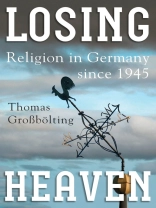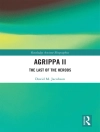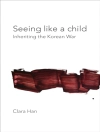As the birthplace of the Reformation, Germany has been the site of some of the most significant moments in the history of European Christianity. Today, however, its religious landscape is one that would scarcely be recognizable to earlier generations. This groundbreaking survey of German postwar religious life depicts a profoundly changed society: congregations shrink, private piety is on the wane, and public life has almost entirely shed its Christian character, yet there remains a booming market for syncretistic and individualistic forms of “popular religion.” Losing Heaven insightfully recounts these dramatic shifts and explains their consequences for German religious communities and the polity as a whole.
Spis treści
Acknowledgments
Introduction: Losing Heaven
PART I: A CHRISTIAN GERMANY? RELIGIOUS SELF-POSITIONING AND ILLUSIONS AFTER 1945
Chapter 1. Faith in People’s Lives – Lives Lived in Faith? The Religious Field between Re-Christianization and Erosion
Chapter 2. Organize, Standardize, Romanticize. The Churches in Politics and Society
Chapter 3. Proclamation of Faith and Pastoral Work from 1945 to the Early 1960s
PART II: THE NEW DAWN AND THE PLUNGE INTO POSTMODERNITY. THE RELIGIOUS FIELD IN THE 1960S AND 1970S
Chapter 4. The Christian Religious Communities in the 1960s and 1970s
Chapter 5. Politicization and Pluralization. Religion, Politics and Society in the 1960s and 1970s
Chapter 6. From ‘Hellfire’ to ‘All-Embracing Love’. Transformation in the Social Forms of Religion and in the Meaning of Transcendence
PART III: CHURCH BECOMES RELIGION. RUPTURES AND CHANGES IN THE RELIGIOUS SPHERE TO THE PRESENT DAY
Chapter 7. Faith within Life. The Diffusion and Differentiation of the Religious Field
Chapter 8. On the Way to a Multireligious Society? Pluralism as Challenge
Chapter 9. Towards a De-Christianized Society?
Conclusion: God in Germany – Looking Back and Looking Forward
Bibliography
Index
O autorze
Thomas Großbölting is a Professor of History at the University of Münster. His scholarship focuses on social, industrial, and religious history, as reflected in his doctoral thesis on the East German middle class and subsequent work on industrial exhibitions and trade fairs. He is currently researching religious change in postwar Germany and remembrance of the GDR after German unification.












